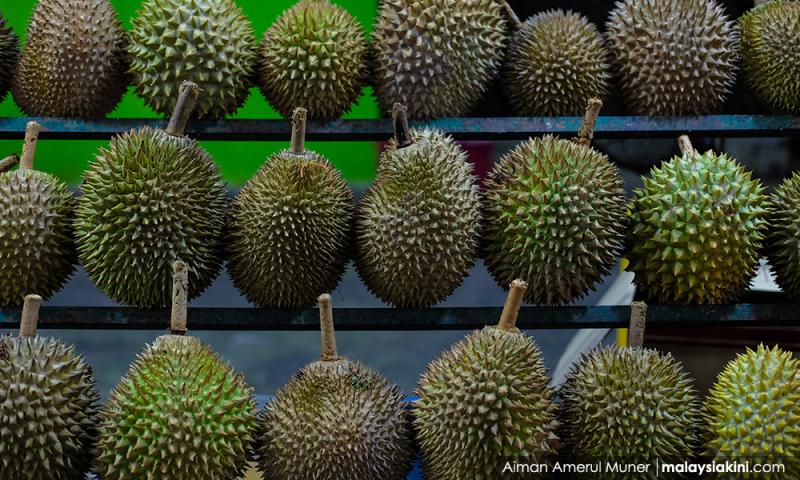FGV, PLS Plantation look to developing durian plantations
Following the signing of a heads of agreement (HoA), FGV Holdings Bhd (FGV) and PLS Plantation Bhd (PLS) are exploring the potential of forming a joint venture (JV) for the development of cash crop plantations, primarily durian.
FGV group chief executive officer Haris Fadzilah Hassan said the collaboration was part of FGV’s strategy to make productive use of unplanted areas that are unsuitable for oil palm, and explore additional revenue streams by increasing the percentage of cash crops.
He said FGV’s logistics and support businesses sector would also benefit from the partnership as it offers a reliable logistical network through strategic collaborations.
“With this HoA, FGV hopes to explore the opportunity for both parties to form a JV, in line with the proposed National Durian Plantation Programme initiated by PLS,” Haris said in a statement today.
The HoA was signed at the recent Belt and Road Forum in Beijing, China.
In August last year, Malaysia’s Agriculture and Agro-based Industry Ministry signed an export protocol with China’s General Administration of Customs for fresh and frozen durian.
“There is a huge potential market for the Malaysian durian industry with China, currently the world’s largest consumer of the fruit,” Haris said.
30 years in the planting and export of durian
PLS, through its subsidiary, Dulai Fruits, has successfully penetrated the markets of 10 countries, with China being the largest.
Dulai Fruits has 30 years of experience in the planting and export of durian.
Haris said FGV would also be able to leverage on PLS’ market intelligence and networks to further strengthen its products and brand positioning in China.
He said the group has identified approximately 1,398 hectares of land with the potential for large scale commercial planting of durian.
According to the United Nations’ trade data, durian exports to China have been increasing at an average 35 percent annually, and was worth US$1.1 billion (RM4.55 billion) in 2017 - significantly higher than US$243 million (RM1.004 billion) a decade ago.
Although Thailand dominates the market, the Malaysian government targets a 50 percent increase in exports by 2030, as the local industry reshapes itself for the global marketplace.
“The durian is the most profit-making cash crop from the value per hectare perspective, and FGV aims to capitalise on China’s demand for the King of Fruits.
“We believe this venture will contribute positively to FGV’s financial performance, which will, in turn, improve shareholders’ value,” Haris said.
- Bernama
RM12.50 / month
- Unlimited access to award-winning journalism
- Comment and share your opinions on all our articles
- Gift interesting stories to your friends
- Tax deductable

 Bernama
Bernama